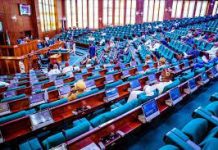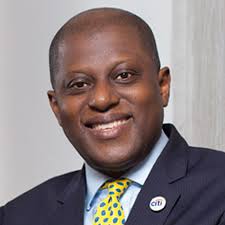Scholars at the University of Lagos (UNILAG) on Friday say the recent xenophobic attack on foreigners especially Nigerians in South Africa will undermine the African Union (AU) agenda of integration.
The scholars told News Agency of Nigeria (NAN) in Lagos that the African policy which seeks to remove trade and migration restrictions would be greatly challenged by this development.
Dr Henry Ogunjewo of the Department of History and Strategic Studies said that the black-on-black attacks in South Africa, said that these attacks would have a negative impact on the thought and the policy of African integration.
“This xenophobic attack in South Africa is going to pose a serious threat to the integration of Africa and set the purpose of AU back in years.
“The lack of a sense of history, on the part of South Africans for not considering the role Nigeria played during their emancipation from apartheid is largely responsible for these attacks on Nigerians.
“Even if they are going to attack foreigners, Nigerians should be spared because of the humongous costs that we have expended to get South Africans out of the doldrums of apartheid,” he said.
The lecturer said that the South African government had not identified and punished any South Africans for the previous attacks made on foreigners and Nigerian lives and properties.
“This means that there is no sanction for those who have erred in the past which means that the attack will only continue,” he said.
Similarly, Dr Merry Osiki said that he did not overly condemn the reprisal attacks happening in Nigeria which he referred to as “tit-for-tat” in international relations.
Osiki, however, condemned the reprisal attacks in Nigeria in terms of concerns for humanity and pleaded with the youths to let the Nigerian government settle it peacefully and diplomatically.
“We should not take the law into our hands but allow the government to amicably use the normal channel of international relation to resolve the case.
“Africans, in the eye of the international community will be seen as people who are not ready to integrate and relate with one another,” he said.
Osiki said that the South African government should address their socio-economic problems and create jobs for their citizens in order to curb the attacks on Nigerians who are doing business there.
He, also, appealed to the Nigerian government to put its house in order and ensure that everything was working well so that Nigerians would be encouraged to stay back home.
“We should guard against breeding anger which is capable of bringing about disunity in Africa.
“Therefore, I advise South Africans to address their economic problems and stop fighting foreigners who are based in their country to make ends meet.
“I also urge South African companies who have businesses in Nigeria that can easily be attacked to talk to their home government to treat this issue at the level of diplomacy.
“If they destroy Nigerian’s interest in South Africa, Nigerians will also destroy South African’s interests in Nigeria,” Osiki said.
Dr Emmanuel Onah of the Department of Political Science said that the South African government needs to come in more decisively and monitor the situation by detecting criminals living among them.
Onah said that those identified as criminals illegally residing in their country should be sent packing as soon as possible.
“South Africa is part of Africa and the population is largely black and the immigrants there are also largely black so ordinarily there should be that brotherhood and African unity.
“Many of the black foreigners are there genuinely but some are also there with false intentions to do drugs and all sorts.
“This shows that most of the black’s there are into bad business, after all, we have Asians as well as Indians who were not attacked because they are into good business,” he said.
Onah, condemned the looting of Shoprite, MTN, Multichoice and other South African owned businesses in Nigeria and called for the criminals to be reprimanded.
“The police should sternly punish those who are caught and associated with the vandalism perpetrated across the states,” he said.
Onah urged Nigerians to let the government relate with the South African government and see how the situation in South Africa can be resolved diplomatically.
Meanwhile, Dr Ferdinand Otto said that the attacks on foreigners and Nigerians might not really be xenophobic but crime-related considering the high prevalence of crime in South Africa.
“The prevalence of crime is high so we cannot rule out the possibility of the fact that these alleged xenophobic attacks are really attacks on foreigners. They could be crime related,” he said.
Otto also said that the South African politicians could create this kind of problem in the system to heat up the polity to frustrate the government in power and make governance uncomfortable. (NAN)



